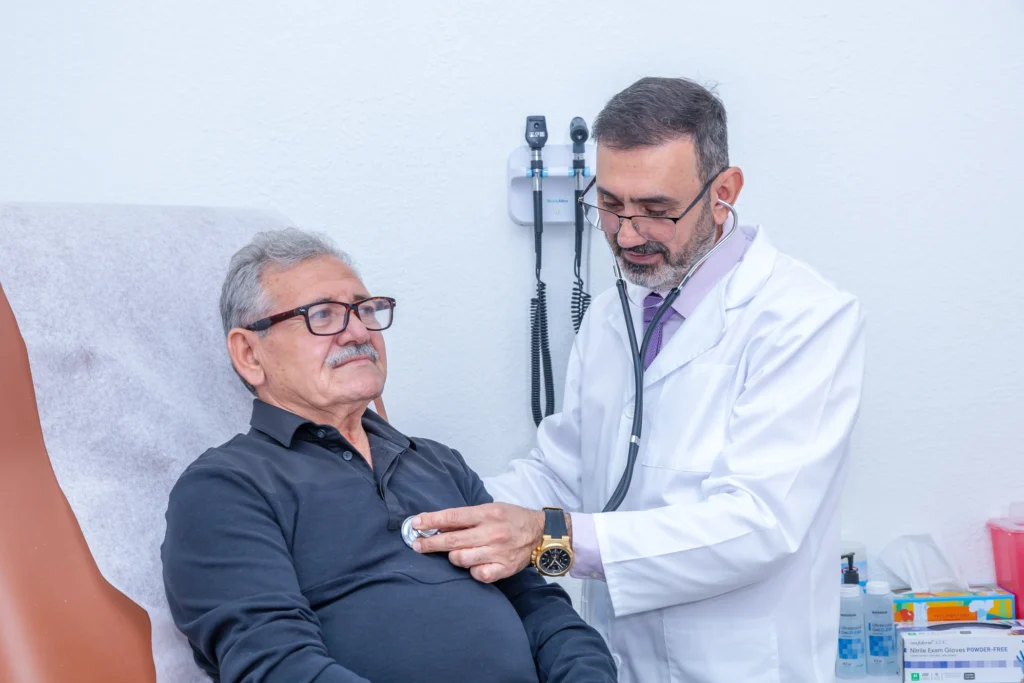Trigger Point Injection Aftercare: Tips for a Speedy Recovery
So, you’ve just gotten a trigger point injection at Dr. A Patient Care here in Spring, TX 77379. Now what? We understand that you’re probably wondering how to make sure you have the best and quickest recovery possible. Don’t worry; we’ve got you covered! Let’s talk about some simple, yet effective tips for trigger point injection aftercare so you can get back to feeling your best.
What to Expect Immediately After Your Injection
Right after your trigger point injection, it’s normal to experience a few things. It’s important to be aware of them so you don’t get worried.
- Soreness: The injection site might feel a little tender or sore. This is perfectly normal and usually fades within a few days.
- Numbness or Tingling: The anesthetic used in the injection can cause temporary numbness or tingling in the area.
- Relief!: You might notice immediate pain relief, but keep in mind that it may take a few days to feel the full benefits of the injection.
Essential Trigger Point Injection Aftercare Tips
Following these tips will help you heal properly and maximize the benefits of your treatment.
- Rest: Avoid strenuous activities for the first 24-48 hours. Give your muscles a chance to relax and recover.
- Ice: Apply an ice pack to the injection site for 15-20 minutes several times a day to reduce swelling and pain.
- Heat: After the first 48 hours, you can switch to applying heat to the area to help loosen the muscles.
- Gentle Stretching: Gently stretch the affected muscle groups to improve flexibility and prevent stiffness.
- Stay Hydrated: Drink plenty of water to help flush out any toxins and promote healing.
- Light Activity: While rest is important, try to incorporate light activities like walking to keep your blood flowing.
Medications and Trigger Point Injection Aftercare
Be mindful of what you take after your procedure.
- Pain Relief: If you experience discomfort, you can take over-the-counter pain relievers like acetaminophen (Tylenol) or ibuprofen (Advil).
- Avoid Blood Thinners: Avoid taking blood thinners like aspirin unless prescribed by your doctor, as they can increase the risk of bleeding at the injection site.
Potential Complications and What to Do
While trigger point injections are generally safe, it’s important to be aware of potential complications and know when to seek medical attention.
- Infection: Watch for signs of infection such as increased pain, redness, swelling, or pus at the injection site.
- Allergic Reaction: Be aware of any signs of an allergic reaction, such as hives, rash, itching, or difficulty breathing.
- Nerve Damage: Although rare, nerve damage can occur. Seek medical attention if you experience persistent numbness, tingling, or weakness.
If you experience any of these complications, don’t hesitate to contact Dr. A Patient Care, or your primary care physician, immediately.
Long-Term Care and Prevention
To prevent trigger points from returning, consider these long-term strategies:
- Maintain Good Posture: Practice good posture while sitting, standing, and walking to reduce strain on your muscles.
- Regular Exercise: Engage in regular exercise to strengthen your muscles and improve flexibility.
- Stress Management: Practice stress-reducing techniques such as yoga, meditation, or deep breathing exercises.
- Ergonomics: Ensure your workspace is ergonomically designed to support proper posture and reduce strain.
- Consider related treatment options for arthritis management if you’re prone to inflammation.
Frequently Asked Questions (FAQs)
Got more questions? We got answers!
How long will it take to feel the full effects of the injection?
It typically takes a few days to a week to experience the full pain relief from a trigger point injection. Some people may notice immediate relief, while others may take longer.
Can I drive myself home after the injection?
It’s usually okay to drive yourself home, but if you feel dizzy or numb, it’s best to have someone drive you.
How many injections will I need?
The number of injections needed varies depending on the severity of your condition. Your doctor at Dr. A Patient Care will develop a personalized treatment plan for you. Consider a consult to see if this is right for you: Get a Consultation
Can I go back to work after the injection?
It depends on the nature of your work. If your job is physically demanding, it’s best to take a day or two off to rest. If your job is less strenuous, you may be able to return to work the same day.
Are there any side effects?
Common side effects include soreness, bruising, and temporary numbness at the injection site. Serious side effects are rare. Don’t worry; trigger point injections are generally safe.
Can I combine this with other treatments?
Yes! Trigger point injections can be effectively combined with other therapies, such as physical therapy or massage, to enhance pain relief and improve function. We also provide wound care management for post-injection care if needed.
Following these trigger point injection aftercare tips will help ensure a smooth recovery. If you have any concerns or questions, don’t hesitate to contact us at Dr. A Patient Care in Spring, TX 77379. We’re here to help you every step of the way on your journey to pain relief.
Book Your Next Appointment Below
Located on 5523 Louetta Rd STE C, Spring, TX 77379, our detailed assessment ensures that all your medical needs are addressed.
Not Sure What You Need?
Visit Our Location

